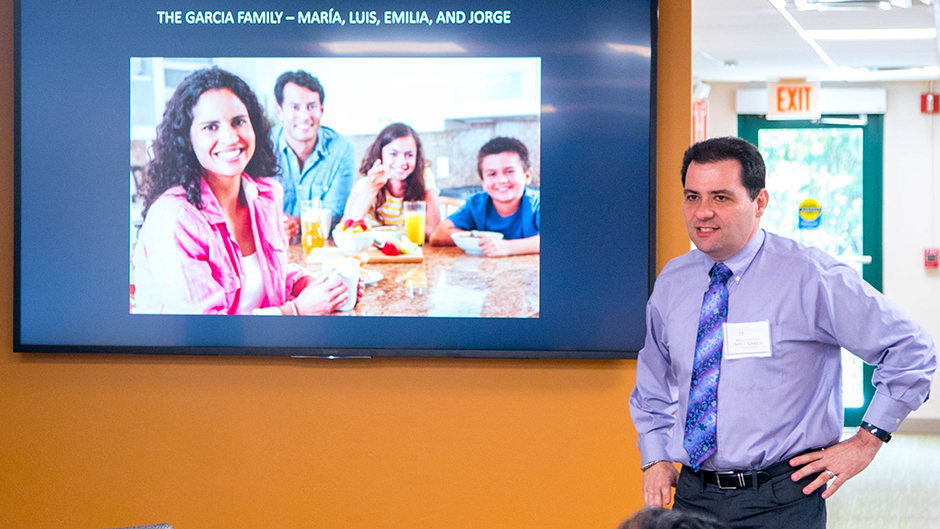“Insecurity, lack of food, lack of medical attention, inflation, the current government is unacceptable. They destroy Venezuela and they go in retreat.”
This was the response of a Venezuelan migrant who voiced the reasons why he left his country. His testimony was included as part of a multi-method study headed by Seth Schwartz, of the University of Miami Miller School of Medicine Department of Public Health Sciences, and a team of academic and community partners.
The study, which was presented February 19 at UM’s Institute for Advanced Study of the Americas, revealed that more than 200,000 Venezuelans have settled in South Florida since 2014. Close to one million other Venezuelans have flooded neighboring countries.
“This is a different kind of immigrant,” said Schwartz, during his presentation, A Different Kind of Immigrant: A Portrait of Venezuelan Immigrant Adults in South Florida and Colombia. “Mass Venezuelan immigration is a fairly new phenomenon. Many come to the U.S. on a tourist visa and stay.”
Dr. Felicia Marie Knaul, the institute's director and a professor in the Department of Public Health Sciences who welcomed the audience to the event, said, “There can be no topic as important as this.”
“Venezuelans are leaving because they are starving to death, because they have no health care,” she said.
Fueled by political repression, economic stagnation and increasing violence, these migrants have pushed Venezuelans to the No. 1 spot of asylum seekers in the U.S., said Schwartz.
As a whole, the migrants are unlike other recent immigrant groups to the U.S., since they tend to be wealthier and more educated. Prior to their exodus to South Florida, many held jobs as lawyers, doctors and in other professions in their homeland.
Partnering with local community organizations such as Nuevos Rumbos, Schwartz and his team recruited 347 families in South Florida and 302 in Bogota, Colombia, to answer extensive surveys for the study, which was conducted in October 2017.
“Our goal was to move beyond the headlines and the newspaper stories we have read about Venezuelans,” said Schwartz. The researchers wanted to know why the Venezuelans left their country, what stressors affected them in their new land, as well as whether they wanted to ever return to Venezuela.
“One of the most interesting things we found was that the Venezuelans who went to Colombia felt a greater degree of discrimination,” said Pablo Montero, a public health Ph.D. student who worked on the project. “We expected that since Colombia was another Latin American country and a neighbor, it would be easier for them.”
But those who fled to Colombia had less education (35 percent had a high school education or less) than those who came to South Florida (65 percent were college graduates) and this could have played a role in their lack of acclimation.
The study also found that those in Colombia were significantly more depressed and slightly more anxious than those who came to the U.S. Both groups said their families had been stressed by the migration, but there were more family problems in Colombia than in South Florida.
Ultimately, Schwartz hopes the information gathered by the study can help provide the kind of services these new immigrants may need as they adapt to a new homeland.

